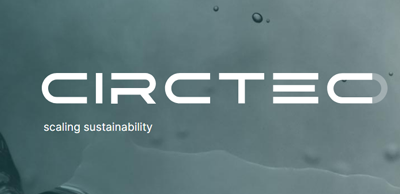Cirtec and BP sign eight-year agreement for pyrolysis generated marine fuel
London, UK – BP has signed an eight-year offtake agreement with Circtec, a UK-based technology company that develops and operates innovative pyrolysis chemical process technology and whose plants convert hard-to-recycle waste tires into HUPATM – Circtec’s proprietary renewable drop-in marine fuel, and circular naphtha petrochemical feedstock.
Under the agreement bp is committed to purchasing up to 60,000 tons per year of HUPATM renewable drop-in marine fuel and up to 15,000 tons per year of circular naphtha petrochemical feedstock, on a take-or-pay basis, from Circtec’s new commercial-scale plant, for eight years after the new plant is commissioned. The €285 million new plant, currently awaiting construction in Delfzijl, The Netherlands, will be constructed to have the capacity to process 200,000 tons per year of waste tires into HUPATM renewable drop in marine fuel, circular naphtha petrochemical feedstock and circular chemical recovered carbon black (rCB). Construction of the new plant is planned to start this year with the first phase of the plant intended to become operational in 2025. bp has also committed
to providing €12.5 million of investment through debt capital, to support the €100 million development of the first phase of the Delfzijl plant.
Over the past decade Circtec has invested in research and development, patent protection and extensive trials with multiple shipping operators to bring the HUPATM product to the marine transport market. HUPA is 50% biogenic and its biogenic portion is certified as having a GHG reduction impact of 87% compared to fossil marine fuel. The product, which is compliant with marine fuels regulations and standards – is ISCC certified for its Greenhouse Gas reduction effect and can be used by shipping operators, blended with fossil marine fuels, to meet the requirements of legal mandates on marine decarbonization under the EU’s FuelEU Maritime Regulation and Renewable Energy Directive.
Starting from next year, European Union legislation1 mandates a progressively increasing obligation on decarbonization of marine transport rising to 80% decarbonization by 20501. This legislation is Based on waste tire data published by the European Tyre Manufacturers Association expected to drive demand for shipping companies sailing into and out of Europe to find lower carbon fuel products that are available at scale to fuel their vessels. Circtec is the only company globally that can make HUPATM drop-in marine fuel from waste tire feedstock that addresses these European mandates.
The Delfzijl plant is Circtec’s first commercial-scale plant investment following a 15-year technology
and product development process. Circtec is planning the development of several plant projects
globally over the next few years, starting with North America and Southeast Asia, as direct owneroperator
plants and as joint-venture licensing partnerships. A previous long-term offtake partnership
for the entire output from the new Delfzijl plant of Circtec’s circular chemical product, recovered
carbon black (rCB), was announced in 2021with Birla Carbon, one of the world’s largest producers of
the chemical carbon black. This is supplied to Birla Carbon for their ContinuaTM SCM flagship
decarbonization product line. The processing capacity of the Circtec Delfzijl plant will account for circa
6% of European waste tyres annually; over 50% of European waste tyres are currently burned in
cement plants or exported to Asia for disposal2. An ISO-standard Life Cycle Assessment of the
Circtec plant investment shows it is expected to reduce GHG emissions by equivalent to circa 3% of
the national emissions of the Netherlands’ chemical industry sector once the plant is at full scale.
Allen Timpany, CEO and Cofounder of Circtec, said: “This entry into offtake and funding
agreements with bp provides Circtec with a long-term offtake relationship, which will assist with our
growth plans over the coming years, and accelerate the development of our pyrolysis plant capacity to
produce renewable and circular products from waste feedstock. We hope that by working together
Circtec and bp can help shipping operators tackle their GHG emissions, while addressing the serious
environmental problem of end-of-life tyres. The Delfzijl plant will be a significant industrial
decarbonization investment in the Netherlands, and bp’s support is an important part of making that happen”.

